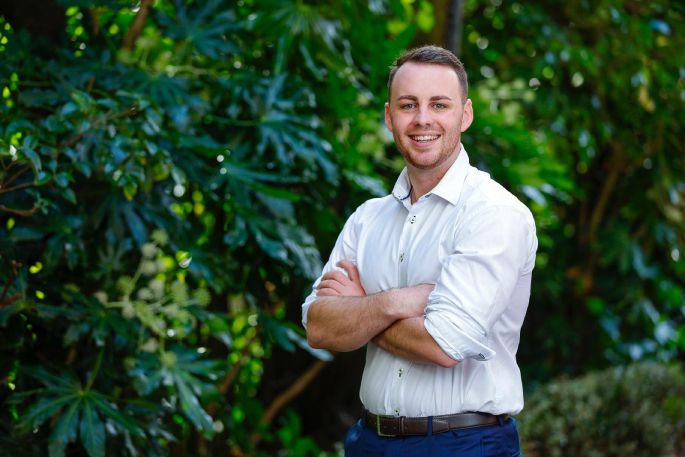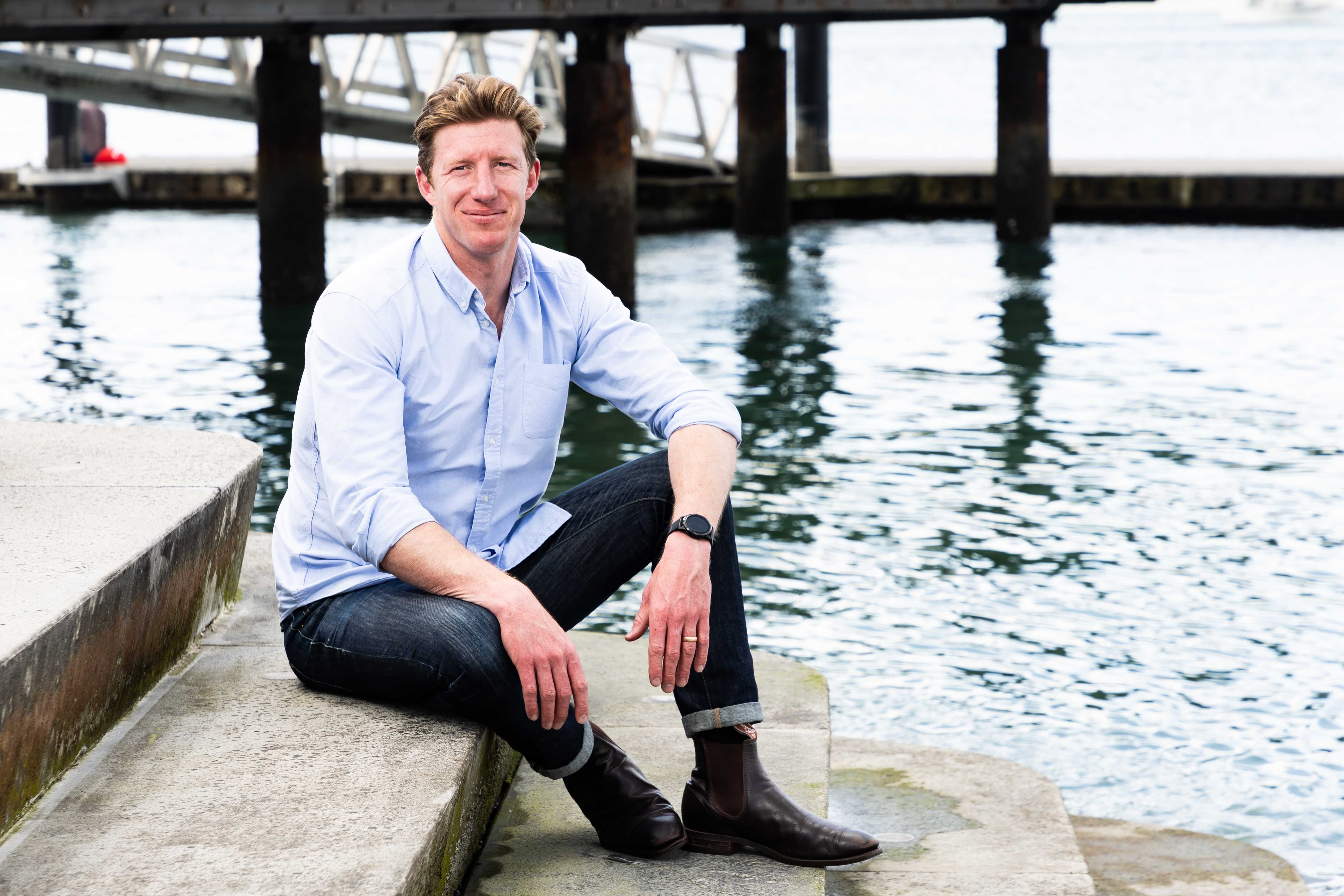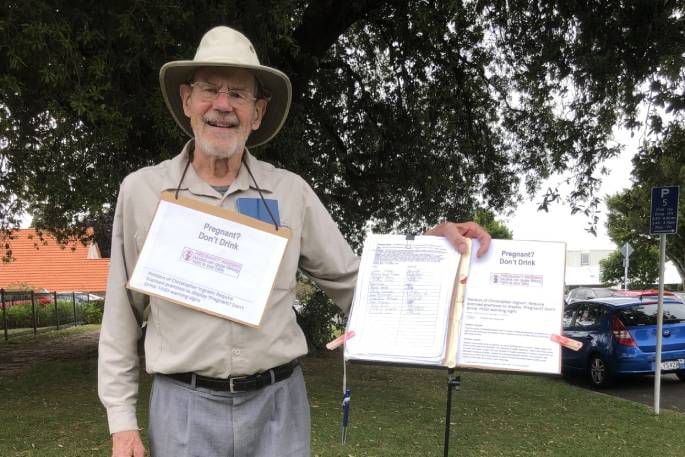A Tauranga man is on a mission to reduce the number of babies born with Foetal Alcohol Spectrum Disorders.
At 87, retired health professional Christopher Ingram continues to advocate for health.
Ingram created a petition to take to Parliament to reduce the number of babies born with FASD.
The Ministry of Health says FASD is a diagnostic term for a neurodevelopmental disorder caused by exposure to alcohol before birth.
People who have it can experience complex physical, behavioural, learning and intellectual problems that persist throughout their lives.
Ingram will meet with Bay of Plenty MP Tom Rutherford on February 10 to hand over the petition to be taken to Parliament with the hope it will get passed as a law.
“When in Parliament, I’m hoping it will receive full crossbench support from all MPs to be passed speedily to benefit the whole country,” said Ingram.

Bay of Plenty MP Tom Rutherford will be taking the petition to Parliament. File / Photo
Rutherford said one of the requirements to present a petition to Parliament was to have an MP present the petition to the House before it can be considered by a select committee “and so I agreed to do that”.
“I’ll be collecting the petition from Chris next week, I’ll then present it to Parliament on his behalf and then it’ll go through the necessary process.”
Rutherford thinks the conversation is one that needs to be had.
Tauranga MP Sam Uffindell said petitions presented to Parliament are a key part of a healthy democracy and allow select committees to review and make recommendations that ultimately might help to bring about new legislation.

Tauranga MP Sam Uffindell said petitions presented to Parliament are a key part of a healthy democracy. Photo / Alex Cairns
“I commend Christopher for drawing attention to FASD and focusing on preventative measures.
“FASD is a serious issue that affects individuals and families for life, and a coordinated, whole of community response is needed.
“That’s why our government announced eight new initiatives last year to promote better prevention, education, and support for people with FASD.
“We have provided $6.85m for training 30 health professionals to recognise, diagnose and support children with FASD and their families as well as a prevalence study, to better understand the challenge that FASD presents in a New Zealand context.”
Uffindell said improvements are needed around data nationally and regionally, and he hopes to see continued focus in this area so targeted approaches to help reduce the debilitating instances of FASD in Tauranga and across New Zealand can be delivered.
Years ago, a friend of Ingram's adopted a child, and it was later revealed this buddle of joy had been affected by FASD.
His friend’s adopted daughter had problems with socialising and learning, which changed the family’s dreams and lives forever. “This has stayed with me for 50 years,” he said.
He learned that if a pregnant woman were to drink any amount of alcohol, it could cause lifelong damage to the developing foetus.
Ingram believes this is completely preventable and is working towards informing and educating future mothers and their supporters to reduce the number of babies born with FASD.
In early January, Ingram was driving by the police station on Willow St and passed a sign saying ‘Drinking? Don’t Drive’.
“My mind switched it round to ‘Pregnant? Don’t Drink’. Direct, unequivocal, just three words,” he said.
In the beginning, he started with an intensive 12 months committed to planning and gathering signatures for his petition.
His petition asks for signs to be displayed within and on the doors of every liquor store to “Inform pregnant mothers so they can make an informed choice to drink or not.”
He had a goal of 1000 signatures, and by the time the petition closed on January 30, he had passed his goal.
Ingram spoke to several members of the public while gathering signatures for his petition, many of whom had or knew of people with personal experience with FASD.
The Ministry of Health said around 1800-3000 babies may be born with FASD each year in New Zealand.
“People have been hugely encouraging and supportive when I talk to them about it, especially women who have first-hand experience.
“Some suggested that it [petition and liquor store signs] would make no difference at all.”
Ingram said if the petition was to be passed as a law, it would cost approximately $18,500.
“There are about 11,403 liquor outlets in New Zealand and Kale Print estimated the cost for one A4 and one A3 sign in each to be $18,500.
“Alcohol-affected babies in New Zealand cost billions to the government who now are strongly motivated to reduce both incidence and costs.”
The New Zealand Institute of Economic Research (NZIER) report, published in June 2024, estimates the costs of alcohol harm to New Zealand since 2009.
The report said $4.8 billion had been spent by the government in association with disability-adjusted life years from FASD and “$4 billion in lost productivity associated with alcohol use, including FASD, crimes and workplace absenteeism”.
A total of $9.1 billion had been spent by the government for costs relating to alcohol harm.
“My motivation is that children be not harmed by the neurotoxin that alcohol is for the foetus, that more children can live the full social, productive lives that we do,” Ingram said.
“Pregnant women being encouraged to quit – to totally avoid alcohol by clear, honest messaging on the liquor shop door before they enter the shop to buy a bottle or can.
“Sure, by law these have to have ‘Pregnancy Warning’ visible on the label, but once it’s in their hand and purchased it’s likely too late.
“Once you’ve bought the bottle and it’s in your hand, are you just going to drain it down the sink? You’re more likely to drink it and say, ‘Well, this will be the last one’.
“I want this sign in the doorway, ‘Pregnant? Don’t Drink’, to give them an opportunity to make a choice.”
He said people will likely see it and think, “Too bad, I’m just going to drink anyway”, but I believe that some wouldn’t.”
Ingram also hopes this will encourage the supporters of pregnant women to stay dry with them in solidarity.
“The father-to-be, grandparents or supporting friends of the woman who’s pregnant will see the sign as well, and maybe they’ll rally around and say ‘Hey, we’ll stay dry with you'.
Ingram said FASD is not just an issue for the mother, but it also impacts supporters and family members.
He said his friends’ grandparents have found themselves looking after and bringing up a FASD child as the parents split up.
Ingram said he is so passionate about this cause, he often sits and cries just thinking about it.
To sign the petition, visit Petition of Christopher Ingram: Require licensed premises to display ‘Pregnant? Don’t Drink’ FASD warning signs.
If you or someone else is in need of support around drinking while pregnant, visit Nurture the Future within.
For more information about FASD, visit FASD-CAN (Fetal Alcohol Spectrum Disorder, Care Action Network), Health NZ | Te Whatu Ora or the Ministry of Health.



0 comments
Leave a Comment
You must be logged in to make a comment.